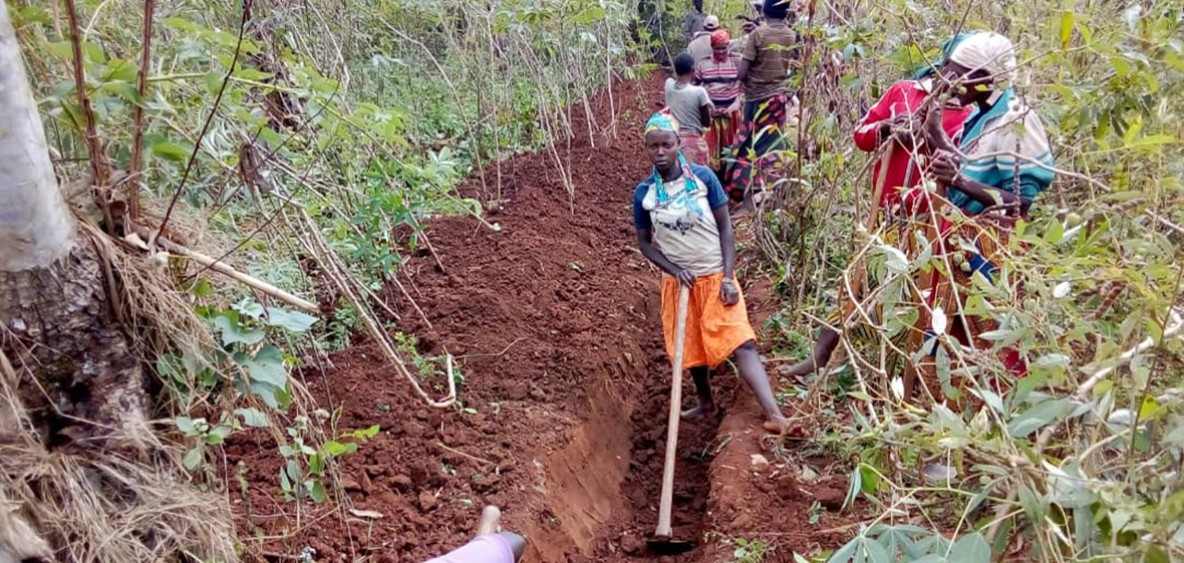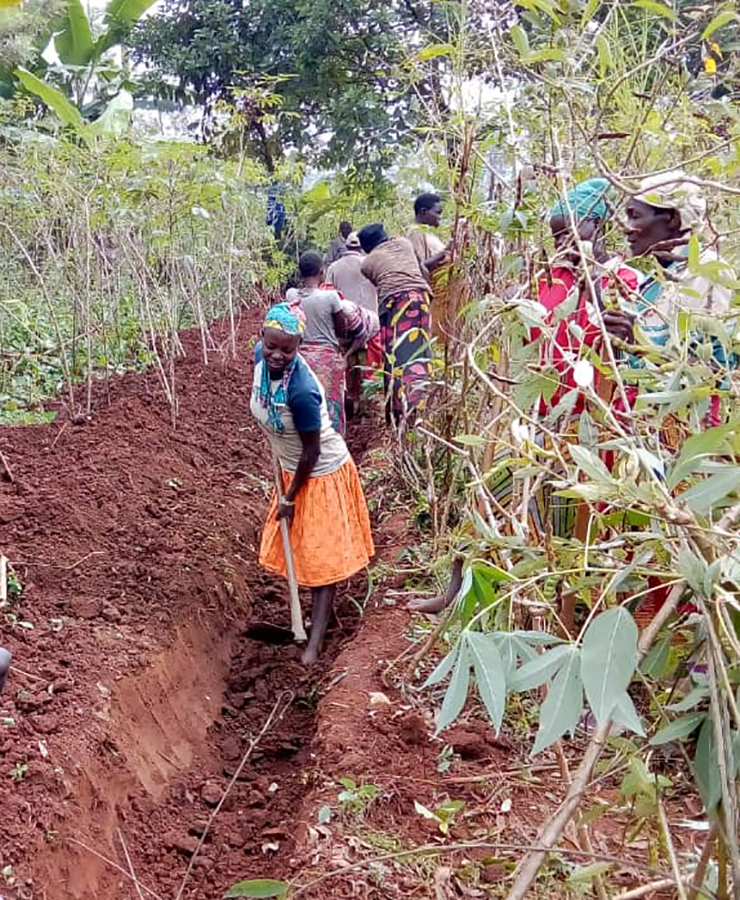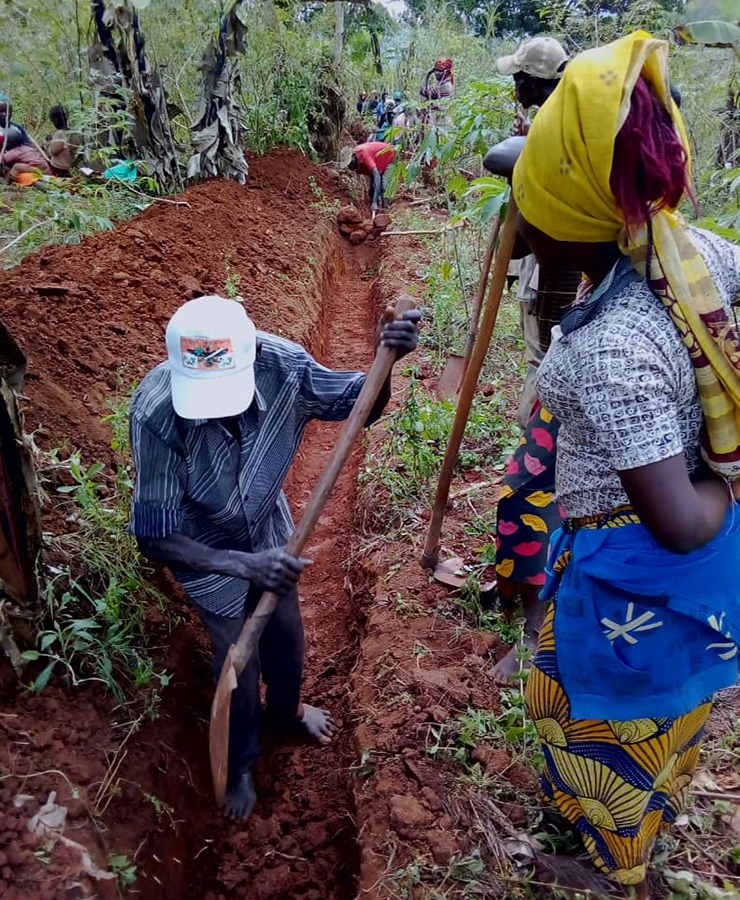
90 percent of Burundi’s population relies on subsistence agriculture for their livelihood, making the reversal of environmental degradation an imperative for everyone involved.
Community buy-in and participation is the key to the sustainable success of almost any development programme. Close community involvement and ownership leads to long-lasting behaviour change. For human-centred challenges like food insecurity and land degradation, behaviour change—influencing the way people make decisions and facilitating positive action—is at the heart of transforming unsustainable paradigms.
In Burundi, the economy is dominated by small-scale, rain-fed agriculture: more than 90 percent of the total population relies on subsistence agriculture for their livelihood. However, because of environmental degradation in the country, agricultural productivity has declined, and more than 50 percent of the population is chronically food insecure.
The decline in agricultural productivity contributes to poverty, social conflict, rural-urban migration and vulnerability to climate change. These impacts are particularly felt amongst vulnerable population groups, including women, youth, and the elderly. The situation needs to be turned around as a matter of urgency.
With this in mind, the RFS Burundi project is engaging communities in Burundi’s highlands to scale up integrated watershed management around the Gituku river. Integrated watershed management is about restoring balance to the watershed ecosystem, ensuring optimum water quality and quantity, increasing soil productivity, and managing the way that humans interact with the system in a sustainable way.
One of the first steps in engaging the community in integrated watershed management work is raising awareness. In June, the Food and Agriculture Organization (FAO), the implementing agency of the RFS Burundi project, partnered with the Government of Burundi to hold an awareness raising meeting for the communities of Nyamugari, Rweru and Kibimba Hills. The meeting, attended by over 200 community members, focused on providing community members, local elected officials and service providers with an overview of the causes of land degradation in the Gituku watershed and the associated socio-economic and ecological impacts. Importantly, it was also a call for effective participation of the community members in the sustainable management of their land.

As part of the implementation of the RFS Burundi project, water and soil conservation activities are planned on 700 ha in the Gituku watershed. To help implement the conservation activities, the FAO team has enlisted the support of a local NGO, Appui à la Promotion des Cultures Vivrières (Support for the Promotion of Food Crops/APROCUVI), an organisation with extensive experience in the region.
Together, with APROCUVI, the communities will help construct and vegetate 1,400 km of contour lines and plant fruit trees, which will break up the flow of water and make it harder for soil erosion to occur, thereby improving soil health and agricultural productivity. To ensure alignment with other national conservation initiatives and with government standards, the contour construction will be overseen by the Department of Rural Engineering, the government structure responsible for the implementation of the national policy on sustainable land management.
The RFS Burundi project offers a great example of how strategic partnerships—between RFS agencies, government, local NGOs, and local communities—can improve project outcomes. Establishing such strong partnerships is a key element of all RFS projects as it ensures project interventions are aligned with government and community priorities. It also ensures the best skills are used on the job—implementing partners, like APROCUVI, are chosen for their knowledge and experience within the local context.

Throughout the RFS programme, the most important partners are the community members themselves. RFS Burundi Project Director, Salvator Ndabirorere, believes community members will play a central role the execution and monitoring of the project: “The community is called upon to take ownership of the interventions because they will continue to maintain the infrastructure after the project is over.”
By involving the community from the very beginning through awareness-raising workshops, such the one held in Giheta, RFS invites community members to become active participants in the projects. This type of consistent engagement goes a long way towards encouraging local ownership of the interventions and securing the long-term sustainability of the project outcomes.
Subscribe to our monthly newsletter to receive updates on stories directly from the field across all our projects, upcoming events, new resources, and more.